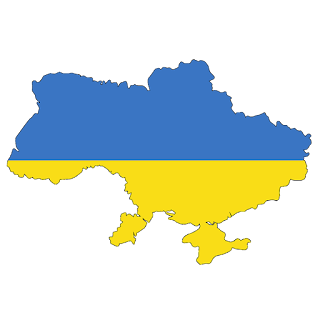Ukrainian Phrases for Eating and Drinking
.png)
Ordering Food
Ви будете замовляти щось на обід? (Vy budete zamovlyaty shchos na obid?)
Translation: Would you like to order something for lunch?
Так, я би замовив борщ і чай. (Tak, ya bi zamovyv borshch i chay.)
Translation: Yes, I would like to order borscht and tea.
Vocabulary
- ви будете - you will
Grammar: Future tense of "бути" (to be), second person plural, used here to form a polite question. - замовляти - to order
Grammar: Infinitive verb meaning "to order," used after "будете" to express future action. - щось - something
Grammar: Indefinite pronoun, accusative case, used to refer to an unspecified item. - на обід - for lunch
Grammar: Prepositional phrase with "на" + accusative case of "обід" (lunch) to indicate purpose/time. - так - yes
Grammar: Adverb used to affirm or agree. - я би замовив - I would like to order
Grammar: Conditional phrase with "би" (conditional particle) + "замовив" (past tense of "замовити," masculine singular). - борщ - borscht
Grammar: Masculine noun, accusative singular as the object of "замовив." - чай - tea
Grammar: Masculine noun, accusative singular as the object of "замовив."
Test Your Knowledge
What does "замовляти" mean?
Breakfast Preferences
Що ви б хотіли на сніданок? (Shcho vy b hotily na snidaniek?)
Translation: What would you like for breakfast?
Я би з'їв омлет і запив його кавою. (Ya bi z'yiv omelet i zapiv yoho kavoyu.)
Translation: I would like to have an omelet and drink coffee with it.
Vocabulary
- що - what
Grammar: Interrogative pronoun, accusative case, used to ask about an object or choice. - ви б хотіли - you would like
Grammar: Conditional phrase with "б" (conditional particle) + "хотіли" (past tense of "хотіти," second person plural). - на сніданок - for breakfast
Grammar: Prepositional phrase with "на" + accusative case of "сніданок" (breakfast) to indicate purpose/time. - я би з'їв - I would eat
Grammar: Conditional phrase with "би" + "з'їв" (past tense of "з'їсти," masculine singular, meaning "to eat"). - омлет - omelet
Grammar: Masculine noun, accusative singular as the object of "з'їв." - запив - drank (with)
Grammar: Past tense of "запити" (to drink with), masculine singular, used to indicate drinking to accompany food. - його - it
Grammar: Masculine accusative pronoun referring to "омлет" (omelet). - каввою - coffee
Grammar: Feminine noun "кава" in instrumental case, used with "запив" to indicate the means of drinking.
Test Your Knowledge
What does "сніданок" mean?
Trying Dishes
Давайте спробуємо цю страву. (Davayte sprobuyemo tsyu stravu.)
Translation: Let's try this dish.
Як вона смакує? (Yak vona smakuye?)
Translation: How does it taste?
Дуже смачно! (Duzhe smachno!)
Translation: Very tasty!
Vocabulary
- давайте - let's
Grammar: Imperative form of "давати" (to give), used to suggest a collective action. - спробуємо - we will try
Grammar: Future tense of "спробувати" (to try), first person plural. - цю страву - this dish
Grammar: "Цю" (this) is a feminine accusative pronoun agreeing with "страву" (dish, accusative singular). - як - how
Grammar: Interrogative adverb used to inquire about manner or quality. - вона - it/she
Grammar: Feminine nominative pronoun referring to "страва" (dish). - смакує - tastes
Grammar: Present tense of "смакувати" (to taste good), third person singular. - дуже - very
Grammar: Adverb intensifying an adjective or adverb. - смачно - tasty
Grammar: Adverb describing the taste of food, derived from "смачний" (tasty).
Test Your Knowledge
What does "смачно" mean?
General Food Vocabulary
Я голодний, хочу їсти. (Ya holodnyy, khochu yisty.)
Translation: I am hungry, I want to eat.
Я спраглий, хочу пити. (Ya sprahlyy, khochu pyty.)
Translation: I am thirsty, I want to drink.
Vocabulary
- їсти - to eat
Grammar: Infinitive verb used to express the action of eating. - пити - to drink
Grammar: Infinitive verb used to express the action of drinking. - страва - dish
Grammar: Feminine noun, nominative singular, referring to a prepared food item. - келих - glass
Grammar: Masculine noun, nominative singular, referring to a drinking glass. - столова ложка - tablespoon
Grammar: Feminine noun phrase, nominative singular, referring to a large spoon. - чайна ложка - teaspoon
Grammar: Feminine noun phrase, nominative singular, referring to a small spoon. - гостинець - treat, delicacy
Grammar: Masculine noun, nominative singular, referring to a special food item. - буты голодним - to be hungry
Grammar: Phrase with "бути" (to be) + "голодним" (hungry, instrumental case, masculine singular). - буты спраглим - to be thirsty
Grammar: Phrase with "бути" (to be) + "спраглим" (thirsty, instrumental case, masculine singular). - хочу - I want
Grammar: Present tense of "хотіти" (to want), first person singular.
Test Your Knowledge
What does "їсти" mean?
Back to Ukrainian core phrases
.png)
.png)
.png)
.png)
.png)
.png)
.png)
.png)








